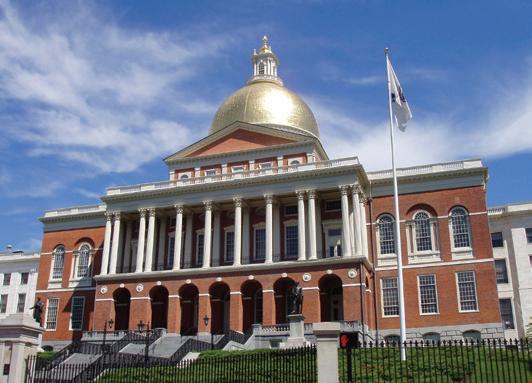
1 minute read
Window Into The State House
Appetite For Rent Control?
Massachusetts housing advocates hangry for a drop in soaring prices, say a debate over rent control in Boston — where costs are among the nation’s most expensive — is slowly making the controversial policy “more palatable” on a statewide level. Voters banned rent control policies across the commonwealth in a 1994 referendum, but Cambridge Rep. Mike Connelly says he’s seen a small, but noticeable, shift in the appetite for policies that could curb the climbing cost of housing that’s being felt in all corners of Massachusetts.
Advertisement
Connolly first pitched his Housing for All bill four years ago, with minimal support from Beacon Hill. The legislation that includes proposals to boost affordable housing funding and address homelessness also includes enabling legislation to allow cities and towns to enact rent control policies that make sense in their communities. “If the Boston City Council can agree to a final policy, there is some sense that people around the commonwealth will see and be open to rent control,” Connolly told MASSterList.
The Cambridge Democrat said this session lawmakers have filed five bills that address the policy in some way. And it’s no longer just Boston-area lawmakers championing the cause — legislators in Canton and Acton have signed on. But all eyes are on Boston, where city councilors on Wednesday hold their first hearing on Mayor Michelle Wu’s proposed homerule petition that could be the first rent control policy to hit the books in almost 30 years. First it faces a trifecta of hurdles — passing the city council, then the Legislature and then earning a signature from Gov. Maura Healey.
Connolly and state Sen. Lydia Edwards, an East Boston Democrat, are hopeful. Healey has signaled she supports a local option for such policies. Wu centered her campaign in part on bringing back some form of rent control as a way to address an intensifying housing crisis. Average rents in Boston, at roughly $3,000 according to recent Census data, now rival those of Bay-area cities.
Her policy, which Edwards and Connolly have called “benign,” faces criticism from both progressive housing advocates who say it doesn’t go far enough and the real estate lobby, who fear it will have a “chilling effect” on much-needed development. The day before the Boston hearing, the Greater Boston Real Estate Board launched a $400,000 opposition campaign hitting Boston voters with text messages, direct mail and a phone bank nay-saying Wu’s policy.
Real estate industry launches sixfigure anti-rent control campaign
One day before Boston city councilors were slated to open debate on Mayor Michelle Wu’s housing stabilization bill that includes a home-rule petition to introduce a controversial rent control policy, the Greater Boston Real Estate Board unleashed an $400,000 campaign against the measure.







